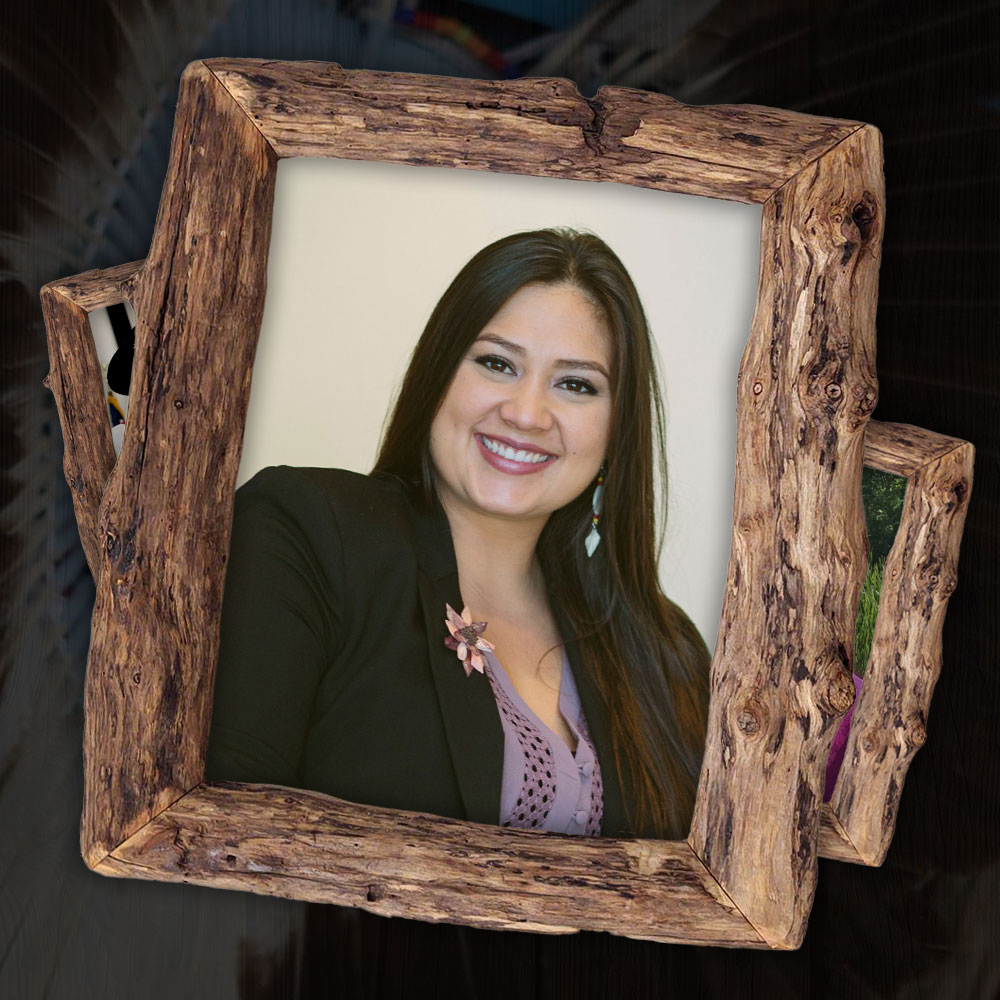
Kasha Lacoban Clay
Houma, LOuisiana
United Houma Nation
“I would say community in general. There’s many assets of our community so I have and it all kind of links together at some point or another, but I have elders that I speak with, and even communicate with, and it’s on different levels. But sometimes I’ll be speaking with fishermen and sometimes I’ll be talking with youth within educational areas of interest and sometimes I’ll be working with artisans, bead workers, basket weavers, so just the type of place I am even a dancer.
“So, I think overall, my favorite part is just the community and the wide range of different talents that people have and different lifestyles that we have within our tribe.”
“I hold my culture very close to my heart. It is something that I can tie back to my ancestry, where my people are from and learn from the struggles they’ve had throughout generations as well as see our growth in the future and the present.
“So, it is not always the prettiest, you know, stories, but by owning up and knowing that’s my heritage, I can teach my kids and move forward from not the prettiest memories.”
“I am really connected with the water, just the livelihood of living along the water is huge for me.
“My dad has always been a fisherman of some sorts, he’s always been the provider of our home shrimping as well as hunting. He would be a seasonal worker. He would work on the shrimp boats during the shrimping season and he would be away from home hunting during hunting season.
“Even when I was like a baby, he would work for skinning alligators at some point, and he also did oystering and he worked offshore shrimping as well, so I’ve always been really connected with our land here, but especially our water systems and that way of life.”
“I think that our biggest fear to protect and to continue the traditions is just that, to continue traditions and to show the younger generations the importance of our land and our water here. I know as time passes different occupations become more scarce. Like our people are not just normally fishermen anymore because it is not sustainable for their living anymore.
“But at the same time, I think it is important to keep our heritage of being, living off of the land living off of the water, just being connected because I don’t want to lose that part of culture.
“Losing that part of culture is also going to lose a lot of work towards sustaining the land and sustaining the water, because there is so many opportunities especially today for our youth and even those coming up right now into college to be able to work in coastal restoration, but I don’t feel like there is as much of a connection culturally that can really push the importance of it as it would have been back in the day.”
Listen


